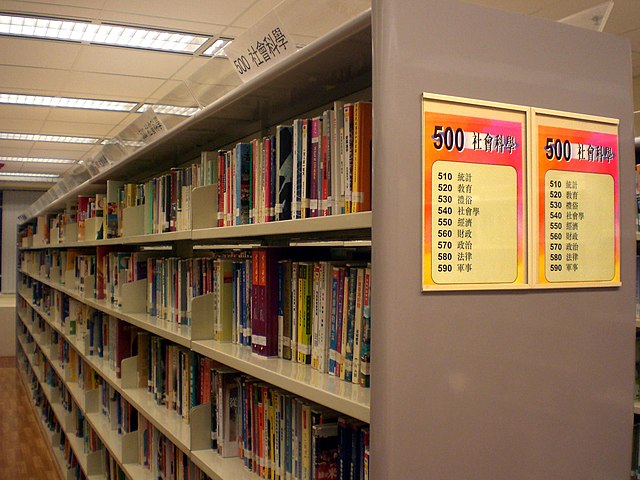Universal Decimal Classification
The Universal Decimal Classification (UDC) is a bibliographic and library classification representing the systematic arrangement of all branches of human knowledge organized as a coherent system in which knowledge fields are related and inter-linked. The UDC is an analytico-synthetic and faceted classification system featuring detailed vocabulary and syntax that enables powerful content indexing and information retrieval in large collections. Since 1991, the UDC has been owned and managed by the UDC Consortium, a non-profit international association of publishers with headquarters in The Hague, Netherlands.
Universal decimal classification used at the library of the maison Losseau.
An explanatory schema of the Universal Decimal Classification index formation in French, 1920
A library classification is a system used within a library to organize materials, including books, sound and video recordings, electronic materials, etc., both on shelves and in catalogs and indexes. Each item is typically assigned a call number, which identifies the location of the item within the system. Materials can be arrange by many different factors, typically in either a hierarchical tree structure based on the subject or using a faceted classification system, which allows the assignment of multiple classifications to an object, enabling the classifications to be ordered in many ways.
A library book shelf in Hong Kong arranged using the Dewey classification
The Moys Classification Scheme as used by the law library of the Hong Kong High Court




